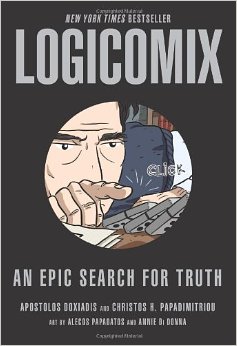I’m not a frequent reader of “graphic novels” or, as we called them when I was a kiddo, comic books. When I was very young, I used to look longingly at the fantastic covers of comic books and imagine the exciting stories they contained. My mother never allowed me to buy them or even pick one up and look at it, as she was convinced they were pure evil and would doom my soul to hell on contact.
But once, when my mother took me on a week-long trip to visit some of her distant relatives in Milam, Texas, something amazing happened. I was given the room of a son who had gone off to college and, as I was unpacking my suitcase into the closet, I noticed a large paper grocery bag in the back filled with Superman comic books. I never told anyone but I stayed up most of the nights while I was there, reading those comics. They were everything I imagined comic books might be. The stories were strange and intense. In my sheltered life of G-rated Disney stories, these were like viewing forbidden R-rated movies.
That week-long comic book marathon was a lone event. By the time I was old enough to buy my own comics, I had largely forgotten about the whole genre and started reading science fiction. I missed out on the resurgence of comics and the rise of graphic novels more so than others my age. Even my wife had Spiegelman’s Maus graphic novels on her book shelf when I met her. But it’s never too late. A few years ago, I picked up a copy of R. Crumb’s The Book of Genesis Illustrated, a detailed, literal graphic novel version of the Biblical book of Genesis. That may have piqued my interest in the more literary uses of the graphic novel format. What I’m leading up to here, as you may have guessed, is a review of another graphic novel. This one contains a story as compelling as the Book of Genesis but one I could identify with on a more personal level.
Logicomix: An Epic Search for Truth, is the beautifully rendered story of Betrand Russell’s life-long quest to find out how we can determine what’s true; what’s really going on the Universe. It also contains a meta-story about the authors and illustrators of the book as they struggle to work with experts in the field of mathematics and philosophy to understand and accurately depict Russell’s life.
Russell’s quest starts as a young child. Bertrand is told that his parents have “gone away”, and he’s taken to live at Pembroke Lodge, his paternal grandfather’s estate. His strict grandparents provide many detailed rules to govern his life there, leading to Bertrand’s growing understanding that the Universe is likewise governed by rules. As he tries to sleep in a strange bedroom on the first night at Pembroke, his rest is interrupted by an “unearthly moaning”. As he listens, terrified, to the loud and lengthy cries, he becomes determined to know their origin.
The next day he asks everyone; maids, butlers, the groundskeeper, but they claim not to have heard it or that it “must have been the wind”. The strange howling returns nightly and presents Bertrand a problem that will define his life. Everyone around him denied something he clearly experienced. Was it possible he was mistaken? Was everyone else lying? Could it be a hallucination? Initially paralyzed by fear during the moaning, his obsession with finding the truth begins to overcome his fear. He spends countless nights sneaking around the estate and the grounds fruitlessly trying to locate the source of the moaning.
Later, tutors are sent to the estate to teach him languages and mathematics. His first encounter with geometry leads to an epiphany – mathematics provide a way of using reason to prove knowledge with certainty. He further learns that science is based on math and is, as his tutor describes it, humankind’s only hope of explaining the natural world. His childhood adventures continue when someone leaves him an anonymous note with clues to his parents disappearance.
The mysteries of the nightly moaning and his lost parents are solved and replaced with others as he grows into a mathematician, logician, and philosopher. His quest expands to nothing less than an attempt to define a set of axioms and rules that can be combined in symbolic logic to prove all mathematical truths. As the story progresses, the reader is given a whirlwind tour of the history of philosophy and logic: Descartes, Spinoza, Plato, Kant, Hegel, Euclid, Leibniz. Soon Russell is a Professor at Cambridge, actually meeting and collaborating with other notable people of the day, many of whom make cameo appearances in the story.
One day an eccentric Austrian named Ludwig Wittgenstein shows up at Cambridge, asking to be Russell’s student. Students of philosophy likely know the rest of the story. Kurt Gödel soon appears on the scene, finally proving that Russell’s goal is a logical impossibility. Wittgenstein goes on to be mostly misunderstood by everyone but seems to have shown that mathematics and logic are merely linguistic constructs and anything proven with them is just an internally-consistent language-game.
But along the way this group of thinkers pretty much invented the modern world as we know it today. They invented, proved, disproved, and debated all sorts of ideas in fields ranging from religion and philosophy to the logic and algorithms that underly modern computers. It’s a wonderful book and I can’t imagine anyone not being transfixed by the story, regardless of any previous interest (or lack thereof) in math and logic.

